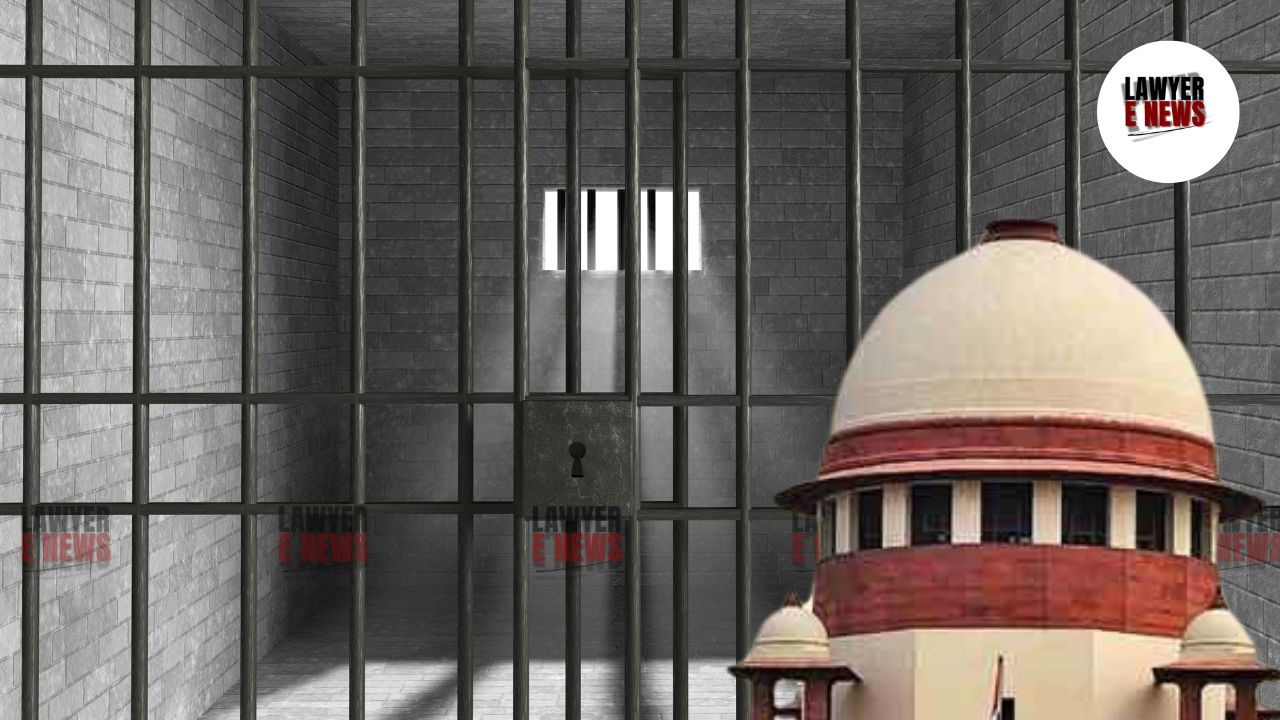-
by Admin
15 February 2026 5:35 AM



In a significant push for transparency and prisoner rights, the Supreme Court of India has ordered all states and union territories to notify convicts within one week of any rejection of their permanent remission applications. Additionally, these rejection orders must be sent to District Legal Services Authorities (DLSAs) to facilitate legal assistance for affected prisoners. A bench comprising Justices Abhay S. Oka and Augustine George Masih underscored that these measures are necessary for fair treatment under the law and access to justice.
Swift Communication Mandated: The Court stressed that states must ensure prisoners are informed of remission rejections within a week of the decision. The orders must also be shared with DLSAs to trigger legal aid efforts.
Transparency in Remission Policies: States must ensure that their remission policies are accessible in all prisons and online, accompanied by English translations. Jail authorities are tasked with keeping eligible prisoners informed.
Detailed Reasons for Rejections: Orders lacking detailed reasons must be supplemented with explanations recorded by Sentence Review Boards or equivalent authorities.
No Delays for Pending Appeals: The Court clarified that remission applications should not be delayed due to prisoners’ pending appeals unless the state is appealing for harsher penalties or acquittal.
State-Specific Directives and Compliance
The Supreme Court evaluated the adherence of various states to these standards, finding areas for improvement and issuing tailored directives:
Tamil Nadu: Criticized for failing to meet earlier deadlines, Tamil Nadu was instructed to review all pending cases within two months and work with DLSAs to assist prisoners whose applications were denied.
Manipur: Ordered to reconstitute a Medical Board, including psychiatrists, to assess five prisoners reportedly of unsound mind and eligible for remission. The state was told to submit its findings by mid-November.
Kerala: Directed to resolve pending applications within two months and ensure remission policies are available online in both English and Malayalam. Legal aid must be provided, and rejected candidates informed with reasoned orders.
Himachal Pradesh: Tasked with expediting legal opinions and collecting documents to finalize decisions on pending cases within two months.
West Bengal: Granted an extension until December 3, 2024, to submit a compliance report.
Assam: Instructed to clear its backlog of remission applications by the end of December, with rejections communicated to prisoners and legal aid facilitated by the state’s legal services authority.
Uttarakhand and Odisha: Both states were ordered to decide pending cases within two months, with Uttarakhand directed to create a system for individually communicating rejection reasons.
Chhattisgarh: Required to establish a Sentence Review Board and finalize an updated remission policy within three months.
Gujarat: Instructed to process all pending applications within two months and provide detailed reasons for any denials, supported by DLSA assistance.
The Supreme Court is set to reconvene on December 3, 2024, to consider broader implications, including whether states must record reasons for rejections, evaluate remission eligibility without formal applications, and establish common conditions for granting permanent remission.
These directives reinforce the Court's commitment to ensuring the fairness and transparency of the criminal justice system. By mandating quick communication of rejection orders and requiring DLSAs to step in for legal aid, the Supreme Court seeks to bridge gaps in prisoners’ access to legal support. The judgment also lays down a strict timeline for states to comply, ensuring that remission processes do not remain opaque or delayed.
Next Hearing Scheduled: December 3, 2024
In Re Policy Strategy for Grant of Bail
